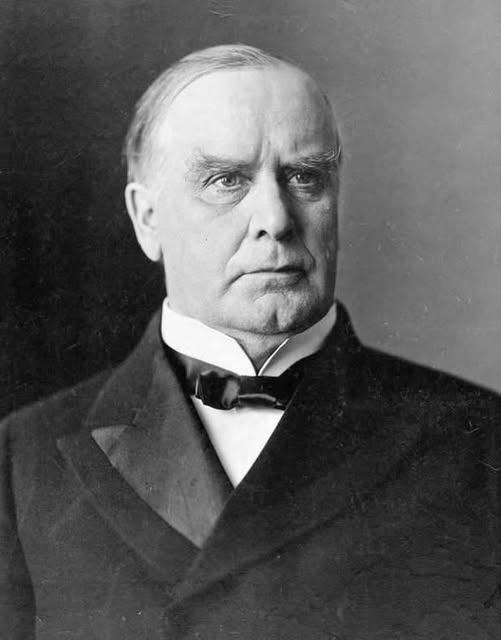The Nation Mourns: The Tragic Assassination of President William McKinley
On September 14, 1901, the United States lost a leader in a moment that shocked the nation to its core. President William McKinley, the 25th President of the United States, passed away after being fatally shot by an anarchist at the Pan-American Exposition in Buffalo, New York. This tragic event not only ended the life of a dedicated public servant but also left the nation grappling with grief, uncertainty, and a profound sense of loss.
McKinley’s assassination was a brutal and shocking act, occurring in a place meant to celebrate progress and unity. The president, known for his steady leadership and commitment to the prosperity of the nation, was cruelly cut down during what was supposed to be a peaceful public appearance. His death marked one of the darkest days in American history and a turning point for the presidency itself.
A Legacy of Leadership and Service Cut Short
William McKinley’s life was a testament to dedication, patriotism, and the enduring spirit of public service. Elected during a time of economic growth and national expansion, McKinley guided the country through the Spanish-American War and helped lay the foundation for America’s emergence as a global power. His vision for the nation was marked by progress, stability, and prosperity.
Those who knew McKinley spoke of his humble nature and deep connection to the American people. He worked tirelessly for the benefit of all citizens, balancing the needs of industry with the rights of workers, and advocating for peace and strength abroad. His sudden death was a heartbreak not only for his family but for millions who admired his unwavering resolve and sense of duty.
An End to an Era, The Rise of Theodore Roosevelt
The assassination of William McKinley brought an abrupt end to a promising presidency and ushered in a new chapter for the nation. Vice President Theodore Roosevelt assumed the presidency, inheriting the weight of a grieving country and the challenges of continuing McKinley’s vision.
McKinley’s death became a catalyst for change, inspiring reforms and a renewed focus on presidential security. The tragedy reinforced the fragility of leadership and the sacrifices borne by those who serve the public. His memory lives on as a symbol of dedication and resilience, reminding us that even in loss, the ideals of leadership endure.
William McKinley’s passing on September 14, 1901, after being fatally shot at the Pan-American Exposition, stands as a solemn chapter in American history. His legacy of service, commitment, and patriotism remains deeply etched in the nation’s collective memory, forever honored by those who value the sacrifices made for the country’s future.
